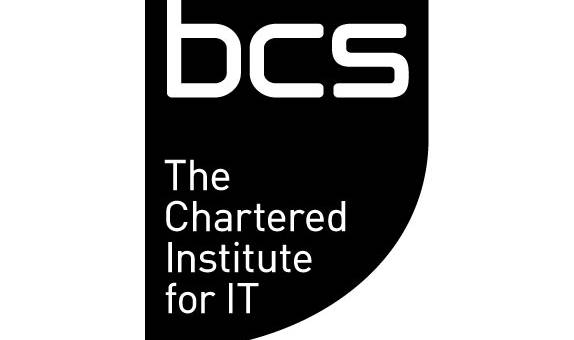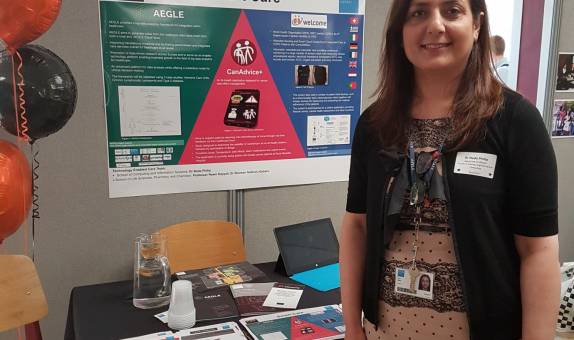Information Systems MSc
Why choose this course?
This course examines the design, development and management of information systems. You will study how information is used in organisations to improve value chains and decision making, in an environment of high-tech innovation, knowledge engineering and business intelligence. You will be trained to recognise and welcome change in the business and information environment created by social, economic, political and technical developments. Input from industry professionals and the Big Data group will give concrete and practical context to your studies. You will acquire Agile qualifications as you develop skills for managing large and small IT projects.
| Mode | Duration | Attendance | Start date |
|---|---|---|---|
| Full time | 1 year | Delivered in 2 separate specific week blocks (Monday to Friday 9am – 5pm) | September 2024, January 2025, September 2025 |
| Full time | 2 years including professional placement | Delivered in 2 separate specific week blocks (Monday to Friday 9am – 5pm) | September 2024, January 2025, September 2025 |
| Part time | 2–3 years | Delivered in 2 separate specific week blocks (Monday to Friday 9am – 5pm) | September 2024, January 2025, September 2025 |
| Main Location | Penrhyn Road |
Reasons to choose Kingston University
- Course content is informed by an industrial advisory board, ensuring what you learn will meet the demands of business and industry.
- You will be able to tailor your studies to suit your career, industry background or the requirements of your organisation.
- The project/dissertation, through which you will study an area of interest in depth, can be an excellent selling point when you seek a job or promotion.
Accreditation
The British Computer Society (BCS) accredits this course. This means that you can gain some exemption against BCS professional examinations, leading to Chartered membership and CEng, IEng or CSci status. For full details of exemption and accreditation levels, please check the BCS course search.
The Faculty is a long-time member of BCS. For many years we have hosted meetings of the local BCS Kingston and Croydon Branch, contributing to members' continuing professional development programmes.
Please note: The programme delivered at our partner institution overseas is not currently accredited by the BCS.
What you will study
You will study the design, development and management of information systems to enable you to recognise and accommodate the increased rate of change and instability in the business and information environment created by social, economic, political and technical changes. You will gain an understanding of how information is used within an organisation, who uses it, the nature of the information, how it relates to decision making and how it contributes to organisational goals and objectives.
The full MSc course consists of an induction programme, four taught modules, and project dissertation. Please note that this is an indicative list of modules and is not intended as a definitive list.
To go on placement, students are required to pass every module first time with no reassessments. It is the responsibility of individual students to find a suitable paid placement. Students will be supported by our dedicated placement team in securing this opportunity.
Modules
Core modules
Business in Practice
30 credits
This postgraduate module covers the theory and practice of the business and management needs of students from different academic contexts such as, but not limited to Science, Engineering, Computing and Health Services who are aspiring team leaders, managers, and entrepreneurs in business within the context of the commercial, public, voluntary, or academic sector.
Students will investigate business topics ranging from finance, accounting, budgeting, and marketing, to organisational management by developing the leadership skills to meet business challenges and to cope with their complexity.
The module will explain and put into context business concepts to graduates from a variety of sectors including those encompassed by Science, Engineering, Computing and Health Services.
IT and Entrepreneurship
30 credits
The knowledge society is a driving force in creating economic growth. It is an aim of Information Systems to use IT to organise relevant information in an entrepreneurial fashion to increase its value, to add more value and, by provoking innovation, to create new and superior value chains.
On this module, the information life cycle and hierarchy, and the various types of intellectual property, will be presented and explained. Subjects covered involve the knowledge-based view of the organisation, theories of knowledge and information use, and the role of various software systems (CRM, CMS, ERP, EDM etc.) in developing supportive information systems and in learning and knowledge cycling.
From that foundation, the module proceeds to explain how to develop an Information Systems strategy to satisfy critical information needs. It also explores the application and use of improved value chains, using the concepts of corporate venturing (intrapreneurship) and entrepreneurship (new venture creation).
You will not only get "knowledge", but also gain an "employability benefit" that you can use in your career as information systems specialists in an innovative organisation and/or as an independent consultant or entrepreneur. The module also introduces legal, ethical and professional aspects, addressing your future employability. You will also gain the necessary research skills to independently carry out a research project.
Agile Project Development
30 credits
This core module focuses on various approaches to agile development and deals with agile project and risk management, techniques, documentation and testing.
On successful completion of the module, you will be able to:
- Critically analyse and explain the concepts, strengths, limitations and suitability of agile development techniques.
- Develop appropriate use of project management qualitative techniques within an agile framework, such as feasibility study, planning, control and estimating, risk management and configuration management and quantitative techniques such as PERT and CPN.
- Apply management and team-building techniques to appropriately managing an information systems development project.
- Select and apply object oriented development techniques within an agile development environment.
- Critically discuss social and professional issues associated with information systems project and risk management.
- Manage the development of a system by applying an agile framework.
Databases and Data Management
30 credits
In this module students will be introduced to the methods, techniques and tools that organisations use to collect, manage, store and secure data. Different approaches and methods will be explored to model data requirements using structured and unstructured databases. Students will also be introduced to data warehousing architectures and concepts in "big data". Essential knowledge of data security issues, including policies, structures and practices used to ensure data security and confidentiality, and the way that such issues are addressed in practice, is also examined.
Project Dissertation
60 credits
This module constitutes the major individual piece of work of the masters programme where the student carries out a project involving independent critical research, design and implementation (where applicable).
On successful completion of the module, students will be able to:
- Select, justify and use effectively the research methods and techniques appropriate for particular cases in order to carry out a literature search and an independent work of research
- Critically identify the need to position their research in the wider academic or business context and structure the dissertation format to agreed conventions
- Plan, manage and critically evaluate the project using the techniques and tools needed in order to bring it in successfully on time and within resourcing limits
- Identify and critically analyse real-world problems or knowledge gaps to which academic concepts and methods can be realistically applied to improve or resolve the problem situation
- Apply skills to show an ability to engage in academic and professional communication with others in their field through report and presentation
- Present critical awareness in applying appropriate legal, social or ethical obligations and when required, respond to the financial and other constraints of a corresponding business environment.
Work placement scheme
Many postgraduate courses at Kingston University enable students to take the option of a 12-month work placement as part of their course. Although the University supports students in finding a placement and organises events to meet potential employers, the responsibility for finding the work placement is with the student; we cannot guarantee the placement, just the opportunity to undertake it. You may find securing a professional placement difficult as they are highly competitive and challenging, but they are also incredibly rewarding. It is very important to prepare and apply yourself if this is the route you wish to take. Employers look for great written and oral communication skills and an excellent CV/portfolio. As the work placement is an assessed part of the course, it is covered by a student's Student Route visa.
Find out more about the postgraduate work placement scheme.
Entry requirements
Teaching and assessment
Who teaches this course?
The course is taught at the School of Computer Science and Mathematics.
The School of Computer Science and Mathematics is driven by the philosophy of 'learning through making'; we focus strongly on facilitating a hands-on experience, student led and owned product portfolios and producing industry-ready graduates.
We utilise a range of innovating teaching and learning approaches in our invigorated and modernised degree programmes; combining studio practices, project-based learning, and context driven lectures to facilitate an informed approach to problem solving.
Postgraduate students may run or assist in lab sessions and may also contribute to the teaching of seminars under the supervision of the module leader
Our modern teaching environment
There is a wide range of facilities at our Penrhyn Road campus, where this course is based. You will have access to a modern environment with the latest equipment, including:
- dedicated postgraduate computing laboratories – fully equipped with fold-flat LCD screens, data-projection systems and high-spec processors;
- state-of-the-art hardware and the latest software, including:
- development software and tools - such as Linux, Microsoft.net, Dreamweaver MX, Flash 8, Eclipse, Java 2 Standard and Mobile Editions, tools for Motorola and Nokia phones, UML and CASE tools and NXP Processors Development Kits;
- Digital Signal Processors (dsPIC Digital Signal Controllers);
- IP Set Top Box development environment (NXP's STB810);
- Electronics Laboratory; and
- a mix of wireless LAN technologies;
- the learning resources centre – offering subject libraries, online database subscriptions and resource materials;
- a postgraduate teaching suite; and
- the dedicated Graduate Centre on campus, providing seminar rooms and social spaces.
Our dedicated team of IT technicians support the labs and are always on hand to provide assistance.
Resources in London
Kingston is just a 30-minute train journey from central London. Here you can access a wealth of additional libraries and archives, including the British Library and the Institute of Engineering and Technology.
Fees for this course
Additional costs
Depending on the programme of study, there may be extra costs that are not covered by tuition fees which students will need to consider when planning their studies. Tuition fees cover the cost of your teaching, assessment and operating University facilities such as the library, access to shared IT equipment and other support services. Accommodation and living costs are not included in our fees. Where a course has additional expenses, we make every effort to highlight them. These may include optional field trips, materials (e.g. art, design, engineering), security checks such as DBS, uniforms, specialist clothing or professional memberships.
Careers and recruitment advice
The Faculty has a specialist employability team. It provides friendly and high-quality careers and recruitment guidance, including advice and sessions on job-seeking skills such as CV preparation, application forms and interview techniques. Specific advice is also available for international students about the UK job market and employers' expectations and requirements.
The team runs employer events throughout the year, including job fairs, key speakers from industry and interviews on campus. These events give you the opportunity to hear from, and network with, employers in an informal setting.
Where this course will take you
Examples of recent graduate destinations for this and similar courses include:
- data manager at the British University Video Council, London;
- expert system analyst at Broadcasting Data Services, London;
- information age position at the Ministry of Defence, London;
- information systems manager at the Peabody Trust, London;
- IT manager at AMB Engineering Ltd, Berkshire;
- operations manager (e-commerce) at the Automobile Association; and
- technology manager at the BBC, Cardiff.
What our students say
Hear about our students' experiences
Informatics MSc student, Pete Stevens, talks about his experience at Kingston University:
Industrial Advisory Board
To ensure your studies are kept up to date and answer the needs of business, our courses are created and reviewed in consultation with an advisory board of key industry experts and senior academics. The Board also provides input and advice on our research portfolio. With members from Google, Microsoft, EasyJet, games developer Colossal and Chief Information Officers from local government - our Advisory Board represents the diverse spectrum of industries and public sector organisations that make up the jobs market for our graduates.
Links with the British Computer Society
The Faculty is also a long-time member of the British Computer Society (BCS). For many years we have hosted meetings of the local BCS Kingston and Croydon Branch, contributing to members' continuing professional development programmes.
What this course offers you
- This course gives you the chance to study a range of information systems topics, enabling you to operate at the interface of business and IT.
- The project/dissertation gives you the chance to study an area of interest in greater depth and gain valuable research skills. It is usually relevant to your career so provides an excellent selling point when you are looking for a job or promotion.
- If you are an overseas student, we will help you to carry out a project either based in your home country or that will be of specific relevance when you return home.
- Teaching staff are research active, which keeps your learning cutting-edge.
- The taught modules aim to prepare you for the job market. Alongside your academic studies, you gain skills in:
- problem solving and organisation
- data collation, review and synopsis
- communication (oral, written and electronic)
- time management
- co-operation and teamwork.
- Each module offers a stimulating balance of study, which may include lectures, practical lab work, group working, case studies and presentations. Industry experts often teach on the courses, enhancing your studies.
- You also have the chance to network with other professionals in the same situation as yourself. Our postgraduate students often set up study groups to support and encourage to each other.
- We offer part-time options to help you fit your studies around other commitments. This course is modular, with each module taught in a week-long block, allowing you to attend as you would for a short course.
- September and January start dates give you extra flexibility.
After you graduate
Graduates have taken on roles including data analyst, business analyst, project manager, IT consultant, entrepreneur and related information systems roles, for example, in digital marketing, software development and testing, etc.
Current research in this subject
Many of our staff in the Faculty are research active. This ensures they are in touch with the latest thinking and bring best practice to your studies.
Computing research activities are focused around the following main research centres:
- Digital Imaging Research Centre - offering expertise in computer vision, medical imaging, visual surveillance, ambient intelligence, machine learning and computer graphic.
Extra activities for this course
The range of events and lectures in the Faculty enhances your studies and adds an extra perspective to your learning.
For example, the Digital Information Research Centre (DIRC) runs seminars which have recently covered:
- How social media affects police operations.
- Dimensionality issues in weighted differential entropy.
- Link quality based routing framework for wireless sensor networks.
- Data integration for smart urban transport.
- HTTP video streaming adaptation.
Course changes and regulations
The information on this page reflects the currently intended course structure and module details. To improve your student experience and the quality of your degree, we may review and change the material information of this course. Course changes explained.
Programme Specifications for the course are published ahead of each academic year.
Regulations governing this course can be found on our website.











